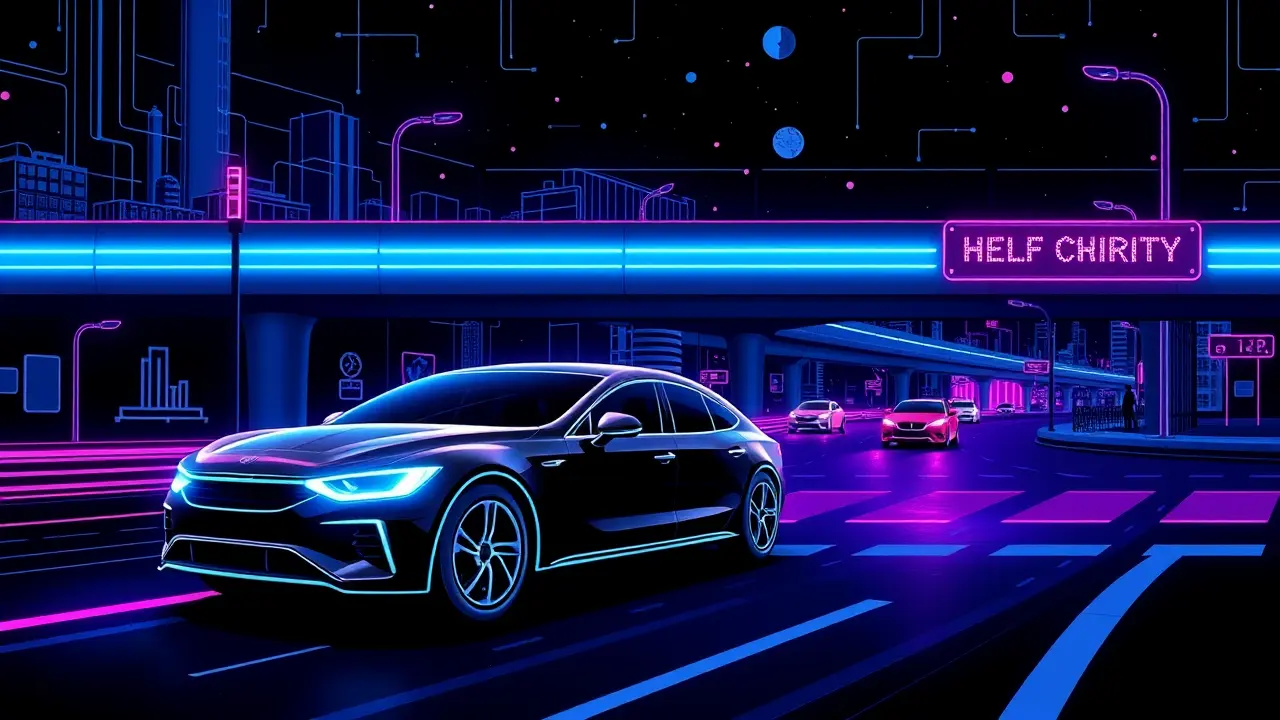
Otherauto & mobilityElectric Vehicles
TechCrunch Mobility: Insights from TechCrunch Disrupt 2025.
AN
Andrew Blake
17 hours ago7 min read
Welcome back to TechCrunch Mobility, your central hub for news and insights on the future of transportation, a topic that, much like my own Wikipedia-fueled curiosity, sprawls out in a dozen fascinating directions at once. It’s a beat that feels less like a single lane of traffic and more like a massive, chaotic, and utterly compelling intersection where the worlds of AI, energy policy, urban design, and sheer human ingenuity collide.The future isn't just arriving on four wheels or with a quiet electric hum; it's being built in the code of autonomous driving algorithms, debated in the halls of regulatory bodies from Washington to Beijing, and tested on the hyperloops and vertiports that are shifting from science fiction to concrete and steel. Think about it: just a decade ago, the idea of hailing a self-driving car from your phone was the stuff of speculative fiction, and now, the conversations at events like TechCrunch Disrupt 2025 are less about 'if' and more about 'how' and 'when' and, most critically, 'who gets to control it.' The entire automotive industry, a century-old titan, is in the throes of a transformation more profound than the switch from horse-drawn carriages to the Model T. We're watching a redefinition of personal property itself—why own a depreciating asset that sits idle 95% of the time when a seamless, on-demand network of electric and autonomous pods could whisk you anywhere? This isn't just a tech story; it's a societal one, touching on everything from the existential crisis facing traditional automakers in Germany and Japan to the geopolitical scramble for battery minerals centered in Chile and the Democratic Republic of Congo.The lithium-ion battery, that unglamorous brick of stored energy, has become the new oil, and the race to secure its supply chain is redrawing global alliances. Meanwhile, the software-defined vehicle is turning every car into a rolling data center, a concept that has privacy advocates in the European Union drafting stringent new regulations and cybersecurity experts working overtime to patch vulnerabilities we haven't even discovered yet.The insights from Disrupt 2025 likely didn't happen in a vacuum; they are the culmination of years of iterative failure and breakthrough, from the early, clumsy prototypes of the DARPA Grand Challenge to the current, nuanced debates over the ethical frameworks for machine decision-making in a potential accident scenario. It's a space filled with towering figures and rivalries—the Elon Musks and Mary Barras of the world—but also with thousands of startups betting everything on a new sensor technology or a more efficient battery chemistry.The consequences of getting this right are staggering: imagine cities reclaimed from parking lots, with green spaces and pedestrian plazas where asphalt once dominated; imagine a dramatic drop in the 1. 35 million annual global traffic fatalities; imagine a logistics network so efficient it reshapes global trade.But get it wrong, and we risk entrenching new forms of inequality, where mobility-as-a-service is a luxury for urban elites while rural communities are left further behind, or where our every movement in a public space is tracked, logged, and monetized. It’s this complex, messy, and utterly human dance between technological potential and practical reality that makes covering this beat so endlessly compelling. It’s not just about the vehicles; it’s about the world we are choosing to build around them.
#TechCrunch Disrupt 2025
#future of transportation
#mobility startups
#automotive innovation
#electric vehicles
#featured
Stay Informed. Act Smarter.
Get weekly highlights, major headlines, and expert insights — then put your knowledge to work in our live prediction markets.
© 2025 Outpoll Service LTD. All rights reserved.